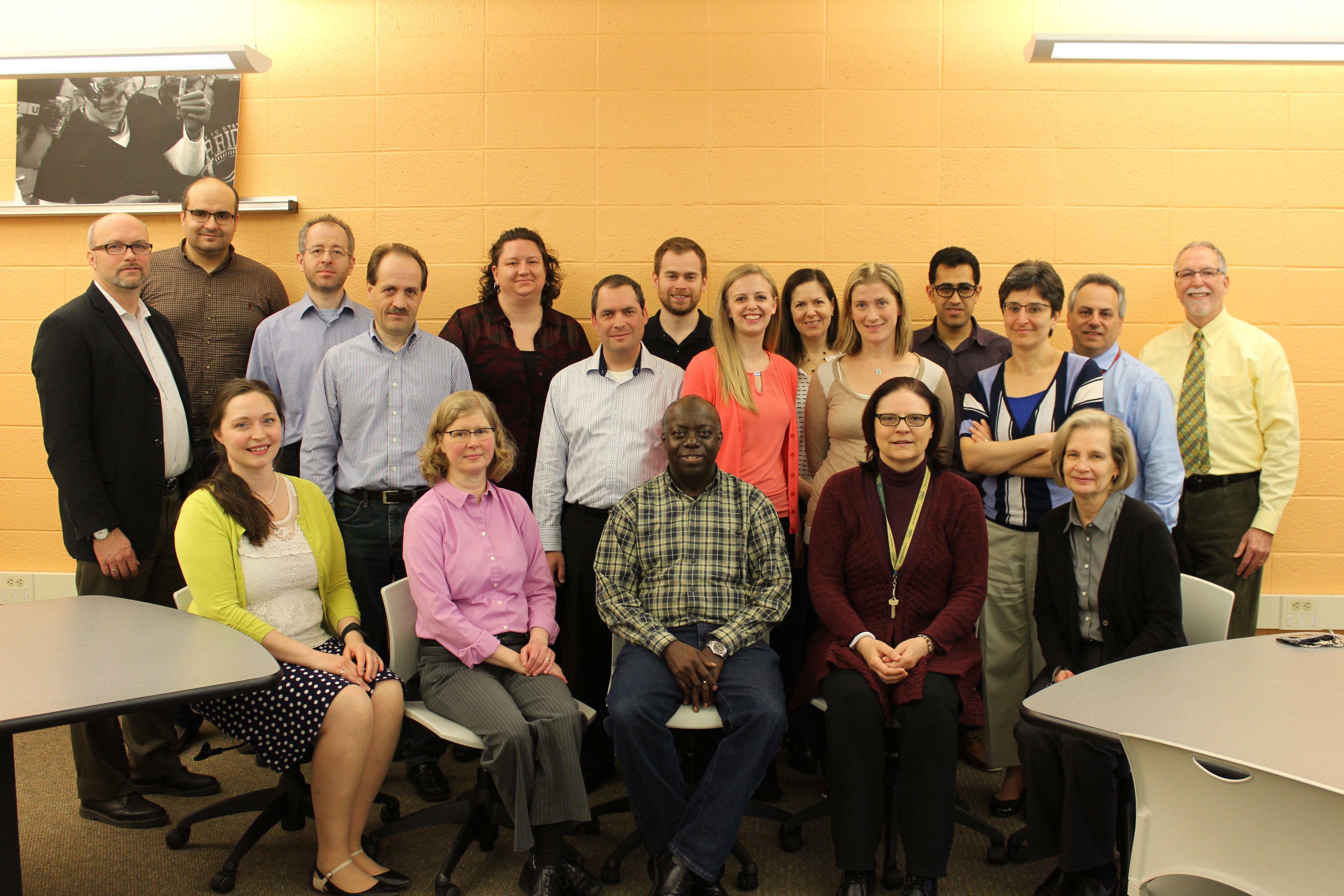Grants
To aid in the pursuit of higher learning excellence, Wayne State University's faculty are warmly encouraged to apply for teaching development grants. The Office for Teaching and Learning supports these grants and awards as the entire University community benefits whenever a grant or award is bestowed upon a deserving faculty member.
BEST
The Broadening Experiences in Scientific Training (BEST) Grant Program helps develop university infrastructure that allows trainees to explore multiple career opportunities and innovative ways to enhance their skills. Trainees will be prepared for a dynamic and evolving job market to meet the needs of the 21st century economy. These skill sets will be developed in partnership with local and national employers through mentored internships to ensure alignment between the employers' expectations and the skills of our trainees.
NSF-WIDER
Wayne State University received a grant from the NSF (DUE-1347576) through the WIDER program to study the pedagogy used in WSU classrooms and explore the opportunities and barriers toward the implementation of interactive, student-centered pedagogies on campus. Such practices, together called evidenced-based teaching, provide the basis of several national initiatives spearheaded by the Association of American Universities (AAU), the Association of Public and Land-Grant Universities (APLU), NSF, and HHMI to provide greater attention toward the way faculty at US Colleges and Universities teach science.
The chief goal of WIDER is to transform institutions of higher education into supportive environments for STEM faculty members to substantially increase their use of evidence-based teaching and learning practices. The first recommendation in the Report of the President's Council of Advisors on Science and Technology (PCAST), "Engage to Excel," is to increase widespread implementation of evidence-based practices in order to increase persistence in STEM and contribute to the goal of producing 1 million additional STEM graduates.
Through this process, WIDER seeks to substantially increase the scale of application of highly effective methods of STEM teaching and learning in institutions of higher education by employing instructional materials and methods that have a convincing evidentiary basis of effectiveness. In particular WIDER seeks this transformation for high enrollment, lower division courses required for many STEM majors and taken by many other students to fulfill general education distribution requirements.
Included in our broad definition of effective STEM teaching and learning are not only instructional practices in traditional learning environments, but also modern laboratory methods and field research, proven distance education methods (or hybrid designs incorporating both face-to-face and distance methods), and improved approaches to motivating student interest in STEM. In all cases, the primary goal of WIDER is to increase substantially the scale of these improvements within and across the higher education sector in order to achieve:
- Improved student learning;
- Increased numbers of students choosing STEM majors, particularly from demographic groups underrepresented in STEM;
- Improved retention in the first two years of undergraduate study and to graduation of all STEM majors.
SSTEP

The Wayne State University Office for Teaching and Learning is participating in a $3 million grant from the National Science Foundation (NSF) to advance an institutional transformation project aimed at incorporating innovative teaching approaches in STEM courses.
The five-year grant is for a project titled "Student Success Through Evidence-based Pedagogies (SSTEP)." It funds a range of competitive department-based awards of up to $100,000 each. Faculty, postdoctoral fellows, and graduate students in successful departments will collaborate on transforming courses to incorporate more evidence-based, student-centered teaching and learning methods on campus.
"This grant will have a remarkable impact on our teaching approaches across campus and will ultimately improve the academic success of our students," said Andrew Feig. "The NSF is investing in us to demonstrate that these types of institutional grants can help us provide better outcomes for our students and serve as a model for improving STEM education nationwide."
The current grant steering committee comprises Peter Hoffmann (physics); Karen Myhr (biology); Asli Ozgun-Koca (teacher education), Christine Hartman (Office for Teaching and Learning), and Sara Kacin (Office for Teaching and Learning). Former steering committee members include Andrew Feig (chemistry), Robert Bruner (mathematics), and Matthew Ouellett (Office for Teaching and Learning). The award number for the SSTEP NSF grant is 1524878.
This award continues work begun with the WSU NSF-WIDER grant (2013 - 2015). The original grant was a self-study of teaching practices used in WSU classrooms and an exploration of the opportunities and barriers toward the implementation of interactive, student-centered pedagogies on campus.
